The long serving President of Uganda is now picking a political fight with his long time friend the USA:
He is always in that habit of turning around against his friends and starts to call them enemies.
This time it is not about world terrorism but sexual orientation.
By World Media
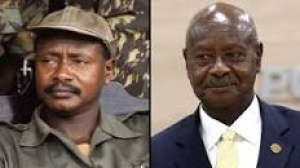
The long serving President of Uganda Yoweri Museveni
Uganda President Yoweri Museveni has said he will not bow to pressure from the Americans who recently struck Uganda off The African Growth and Opportunity Act (AGOA) over alleged continued human rights violations and in particular over the Anti-Homosexuality law.
Museveni accuses the Americans of "overestimating" themselves and "undermining" Africans, saying Africa has proved in the past that it can take on and defeat the mighty invaders. In a statement issued on his X page, Museveni says Ugandans can survive and grow without external support.
Here is the slightly edited statement
Fellow Ugandans and, especially, the Bazzukulu. Greetings.
I need to advise you not to be over-concerned by the recent actions by the American Government in discouraging their companies from investing in Uganda and on removing Uganda from the AGOA list.
Some of these actors in the western world overestimate themselves and underestimate the freedom fighters of Africa. On account of some of the freedom fighters making mistakes of philosophy, ideology and strategy, some of the foreign actors, erroneously think that African countries cannot move forward without their support.
Certainly, as far as Uganda is concerned, we have the capacity to achieve our growth and transformation targets, even if some of the actors do not support us. It is the eight points that I outlined for you at our recent Independence celebrations that are decisive.
The eight points are: patriotism – not following politics of identity but following politics of interests; supporting the private sector; economic infrastructure development to lower the costs of doing business in the economy; regional integration to create big markets that can absorb our products; working with foreigners who respect us; eliminate corruption; social infrastructure to develop the human resource through universal education and health, and protecting the environment that controls our water and our rain.
It is good that the American government avoided the mistake of de-funding the procurement of the HIV drugs for our 1.4 million people on those drugs. However, all our people on the ARVs and all the Ugandans need to know that we had a contingency plan to fully fund the procurement of those drugs if ever the external funders were unable to fund them.
These pressures from outside are joogo (dharau - looking down upon somebody, underrating somebody) towards the Africans and must be rejected. I am told that some of the Arab countries, have similar [anti-homosexuality] laws. Why don’t these actors put similar pressures, on them?
In 1963, the OAU was founded in Addis Ababa. Only 36 African countries were independent at that time and they are the ones that attended. Almost another 20 countries were not yet independent. That OAU meeting, then, demanded that all the African countries, must be independent, either by peace or by war.
The “jogooists” (the arrogant) of the World, mocked us. What can Africans do? In 1964, Frelimo launched the armed struggle against the Portuguese army in Mozambique, joining the MPLA that had launched an uprising earlier.
By 1994, the whole of Africa had been liberated by the force of the Africans supported by the socialist countries of the Soviet Union, China, Cuba, etc. Africa has got all the ingredients to succeed if we use them correctly.
Uganda, under the NRM, is and will succeed, regardless of what some of the external actors and internal detractors do. The further good news, is that not all the western countries’ actors are of the same arrogant attitude.
Many, actually, either agree with us or believe in the correct principles of live and let live. Even in the colonial times, some western actors supported our anti-colonial struggle. People like Fenner Brockway, Dingle Foot, Olof Palme, etc., supported us.
Signed:
Yoweri K. Museveni
Gen (Rtd)
Ssaabalwayni
NB
President M7 and his so called African Bazzukulu once condemned social media as useless and 'lugambo'(unsubstantiated gossip or rumour) and better to tax the media and block Facebook in this country. He has even persecuted or nearly killed some of the users of this international social media. Some of these persecuted right now are rotting away in exile like Idi Amin did, unable to socialize with international media in their own country? How come he continuously sits down on a desk and pays on his twitter A/c or (X page) to use social media to lecture to the whole world about his private knowledge, sexual orientation and many other interests?
The Uganda Opposition protests the continued luxurious lifestyle of President Museveni as parliament passes Shs 53 trillion budget:
By World Media
There is more of the NRM majority parliament trying to pass a national budget for the country of Uganda.
Parliament has passed a Shs 52.7 trillion national budget for FY 2023/2024 amidst protestations from the opposition on accusations that the budget is out of touch with reality.
The budget which takes effect on July 1, 2023, is scheduled to be read by the Finance minister on June 15. Out of Shs 52.7 trillion, at least Shs 21.4 trillion is set aside for statutory expenditure, covering items such as treasury operations totaling Shs 18.9 trillion, pensions and gratuity for retired civil servants amounting to Shs 856.2 billion, among others.
Shadow Finance minister, Muhammad Muwanga Kivumbi faulted the Finance ministry for failing to itemize and provide for activities under statutory expenditure, a move he claimed is intended to be used as a window of fraud. Kivumbi said the budget is overly ambitious and unachievable.
Ministry of Defence and Veteran Affairs has been allocated Shs 3.8 trillion while Shs 2.4 trillion has been allocated to Uganda National Roads Authority (Unra), the bulk of which is to cover construction of roads. Shs 30 billion was plucked from Unra's budget following the agency’s failure to rapidly absorb funds allocated towards the construction of the Hoima-Wanseko road.
Most of the opposition's protestation came against the allocation of Shs 417.9 billion to State House which the Kira Municipality MP Ibrahim Ssemujju Nganda deemed as unlawful and luxurious.
"The total budget for the residency of the presidency in this budget before the second corrigenda was Shs 417.9bn. This means that every day, the president and his family because they are the ones staying in State House, they spend Shs 1.1bn, they spend Shs 47.7m per hour and Shs 795,000 per minute. To put it even more clearly, for every two minutes you can count now, every two minutes, they are spending Shs 1.5m, every two minutes! This parliament would be in breach of the constitution if it passes a budget that allows the president to illegally swim in luxury at the expense of the citizens' welfare," said Ssemujju.
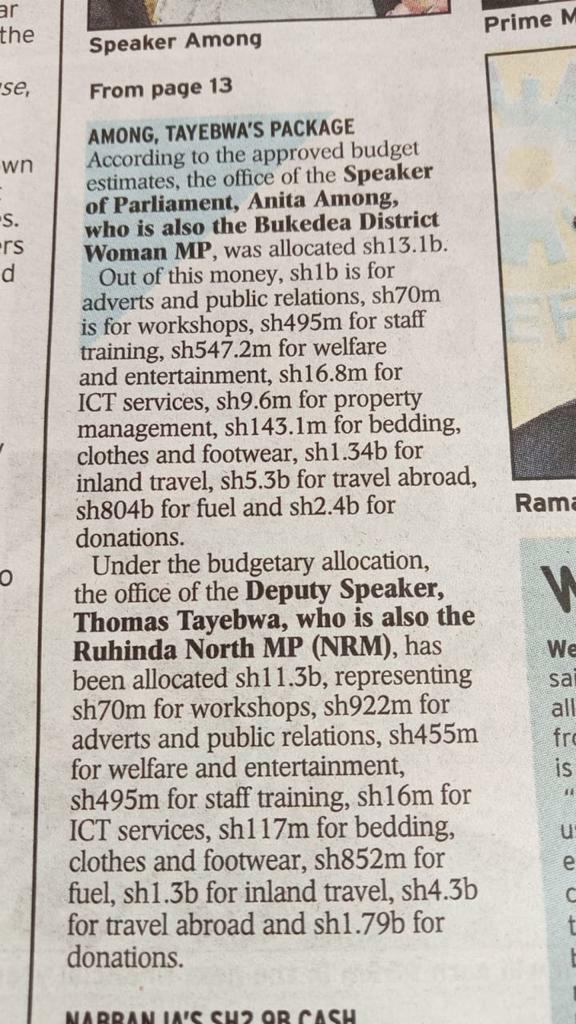 Some of the items of luxury in the national budget
Some of the items of luxury in the national budget
Ssemujju said the president under the constitution works or is supposed to work for the sole purpose of promoting the welfare of citizens, not himself or his family. He wondered why the president has yet again been allocated another Shs 550 million to buy clothes, the same amount that was allocated to him last year. The wardrobe allocations come at a time when Museveni has repeatedly urged Ugandans to promote Ugandan products like him who now wears shoes and clothes manufactured in Uganda by Nytil.
"Shs 350 million to buy clothes, the same amount was provided last year. That means that we're spending on average Shs 1 million on President Yoweri Museveni's clothes every day. Our president is not a [film] star from Hollywood requiring to change wardrobe every day. He's a president of a poor country, why buy him clothes worth Shs 350m every year, what happened to the clothes that were bought last year?" said Ssemujju.
"The president operates two residences at Nakasero and Entebbe illegally. That is why his electricity bill at Shs 500m and water bill at Shs 500m per year is bigger than a big factory like Roofings. Whatever they are manufacturing at State House, only Allah knows ...We're providing Shs 600 million for furniture, we provided the same amount last year. This residence has won itself a place in the history of Uganda. The beds in public health facilities are not there but the president is buying clothes and furniture every year. We're providing Shs 7.8 billion for agriculture supplies, we're also providing another Shs 184 million for veterinary services. Did the president turn State House into a farm without the knowledge of the country? Parliament must be sure that we're not the ones funding President Yoweri Museveni's private farms in Kiozi and Rwakitura...The president has a duty not to abuse State House but if he chooses to do so, this parliament is under obligation to stop him," added Ssemujju.
However, Ssemujju was reminded by the speaker of parliament Annet Anita Among Magogo that allocations to the "presidency statutory and their money is just like parliament. Money that is allocated there can only be discussed by a specific committee. Statutory. Just like you [MPs] don't discuss about your vote of parliament."
Meanwhile, the MPs rejected a proposed Shs 8.5 billion request by the directorate of ethics and integrity in the Office of the President meant to "curb the vice of homosexuality and pornography among the youth.”
It is necessary for Members of the Parliament of Uganda to have their assets confiscated for passing expensive and luxurious budgets for this poor African country to pay out.
The MPs also rejected an allocation of Shs 53 billion to police towards a project that in fact had already closed. National Agricultural Advisory Services (NAADS) had made a request of Shs 3 billion to purchase milk coolers but the MPs said this was a duplication since there are other agencies already doing the same.
Shs 8 billion was allocated to the Directorate of Government Analytical Laboratory for the construction of the National DNA Data Bank. Ministry of Finance, Planning and Economic Development's request to increase by Shs 10 billion their workshops and seminars budget and another similar increment of Shs 10 billion to the ministry’s travel inland vote was rejected by the MPs.
Shs 66 billion was realigned from Uganda Road Fund and given to Kampala Capital City Authority to cater for Kampala city’s dilapidated roads and drainage systems, which recently drew angry social media reactions from Ugandans.
Internal Security Organisation (ISO) was allocated Shs 13 billion more to support intelligence gathering, while the External Security Organisation (ESO) has been allocated Shs 5 billion to support intelligence gathering.
Ministry of Health has been given an extra Shs 18.5 billion for the rehabilitation and maintenance of health centre IIs and IIIs across the country. "The ones staying in State House spend Shs 1.1bn/day, they spend Shs 47.7m/hour & Shs 795,000/minute" The Kira Municipality MP unsuccessfully tried to convince fellow MPs to reduce State House expenditure during the passing of Shs 53tn National Budget #Uganda #UGBudget23 pic.twitter.com/xlYgW1Uav2
Nb
They will be confiscated to pay back for accepting such ridiculous tax wastages to go on any how. That is why many citizens of this country long for a serious and courageous next government.
THE CRISIS OF INTERNATIONAL LABOUR
Hundreds of migrants are stranded in Libyan camps without food due to the civil war in Libya:
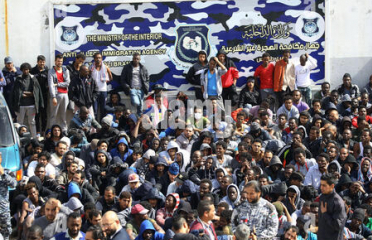
The guards stationed at the centers, which mainly host people intercepted by the Libyan coast guard as they tried to reach Europe by sea, fled over the weekend due to the intensified fighting between the rival groups in Tripoli, leaving the migrants and asylum seekers to their fate with no means of survival, Reuters reports, citing sources on the ground.
Hundreds of people were left behind only in one such government-run facility called Ain Zara and located in the southern part of the Libyan capital, one aid worker told Reuters on condition of anonymity.
"There are about 400 people locked in the Ain Zara detention center, among them 200 men and 200 women and 20 children under five years without food and water," the source said.
The exact number of people stranded in the abandoned Libyan camps is unknown, Reuters reports, adding that another source said that some 1,500 were trapped in another three detention centers. Some of them later fled while others were reportedly transferred to other facilities.
Torture, human trafficking and abuse have become the appalling reality of fractured Libya ever since NATO intervention and the fall of Colonel Muammar Gaddafi's government in 2011 plunged the “liberated” country into lawlessness and chaos. The issue caught attention of the media back in 2017, when a CNN report documented an alleged live slave auction in Libya, where African citizens were sold off for as little as $400.
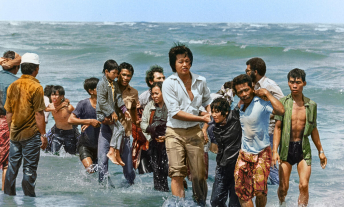
On Tuesday, the UN migration agency said that migrants, who were recently rejected by Italy in a standoff with the European Union, had been held by smugglers in Libya for some two years before eventually allowing to set out for Europe. During that period, these people were subjected to various forms of abuse, including rape, torture and beating, the International Organization for Migration (IOM) said, citing testimonies of the migrants themselves.
“In Libya they complained that many had been beaten and tortured by smugglers and traffickers seeking ransom money from their families in their countries of origin,” IOM spokesman Joel Millman said at a UN briefing in Geneva, adding that all migrants were malnourished and exhausted.
The conflict-torn nation, which saw rival parliaments and governments in the east and west come and go for years, has become a heaven for human traffickers and one of the major entry points to Europe, mostly for people from other African countries. Local warlords and tribal militias control significant part of the Libyan territory, determining the daily lives of people with little regard to the central authority and making the security situation even direr.
Over the weekend, Tripoli witnessed a renewed escalation of violence between the two major militant groups controlling the city, even though both of them are formally loyal to the UN-backed Government of National Accord (GNA) formed back in 2016. On Monday, AP reported that fierce clashes between the rival militias left at least five people dead and 27 injured. The United Nations Support Mission in Libya has voiced concerns over "the use of indiscriminate fire and heavy weapons in densely populated residential areas."
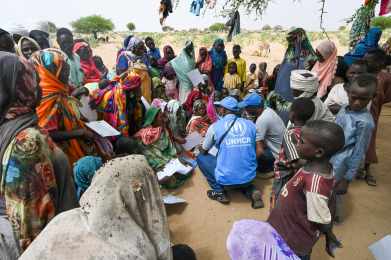
There is a human catastrophe in the making as refugees continue to migrate at this high rate
At least some European countries are apparently determined to make Libya a cornerstone of their new policy aimed at stemming the migration inflow to Europe. Italy in particular made a deal with Libya’s GNA back in 2017, which envisaged using EU funds to train and equip the Libyan forces to patrol its coasts and bring migrants back, effectively subcontracting their rescue to the Libyan coastguard.
Italian government also repeatedly supplied Libya with boats to help it “fight human trafficking” and curb the flow of migrants into Europe. At some point, an Italian-flagged ship transported 108 migrants rescued at sea back to Libya in an event that drew attention of the UN High Commissioner for Refugees in Italy as the UN agency looked into possible violations of international law linked to the actions of the Italian vessel.
Such an advice is worth noting especially for compassionate countries that need to plan well for their populations.
Europe also has recently devised a plan to limit the number of new arrivals by creating refugee centers in North African states. However, this plan soon wrecked on reality as GNA leader Fayez al-Sarraj said that his country would never take back asylum seekers rejected in the EU, nor will it agree to build refugee centers on its soil, even if such a deal would involve financial assistance from Europe.
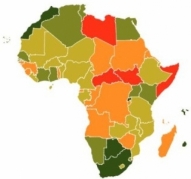
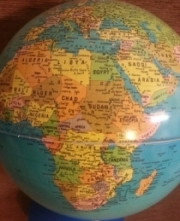


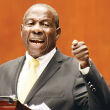

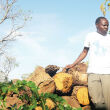
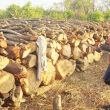


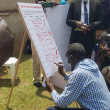
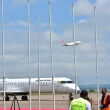


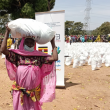



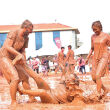

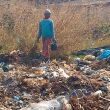
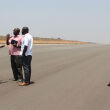

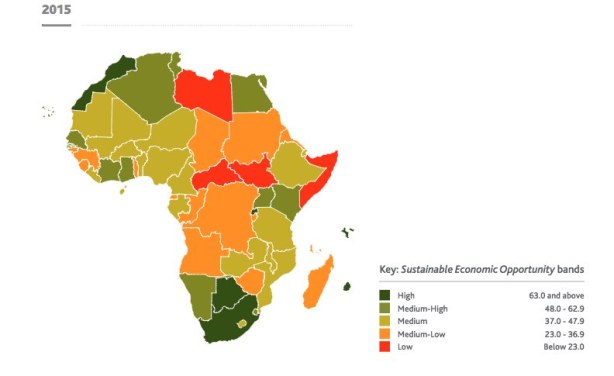
Aid giving countries that are propping up this poor country in the hope that the grandchildren will pay back the high living costs of the current government unfortunately they are very much misguided.